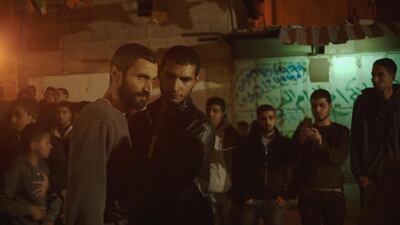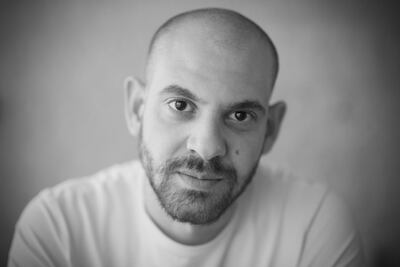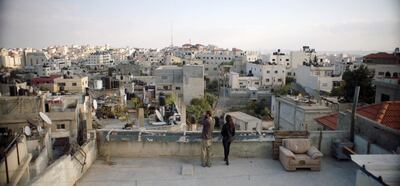After 15 years in an Israeli prison, Screwdriver's protagonist, Ziad, is released to a hero's welcome and is expected to quickly settle back into life in Ramallah. However, the former star of Al Amari Refugee Camp's basketball team barely recognises the Palestine he left behind. He suffers from night terrors and hallucinations – the result of the torture he was subjected to in prison.
While director Bassam Jarbawi uses the film to address universal issues such as how people reintegrate into society after being imprisoned, Screwdriver is a specifically Palestinian tale. The movie, which won the Best International Feature Award at the International Bosphorus Film Festival in Istanbul last year, will be showing at Sorbonne University Abu Dhabi tomorrow. The screening is in co-operation with the Arts Centre at NYU Abu Dhabi and is supported by the Palestinian Business Council.
"Everyone in Palestine either knows someone who spent time in prison or have been incarcerated themselves," Jarbawi tells The National. "A lot of prisoners are quite strong and they have to be, because we put them on a pedestal as political heroes."
Jarbawi says he hopes the film sheds light on challenges facing people who are released from prison, especially political prisoners.
"I decided to focus the movie on a character that was having difficulty in coping with life after incarceration," he says.
“My goal was to show how hard it was for political prisoners to reintegrate into society, especially without ID cards or university degrees.
“Many try to continue their education on their own during their incarceration, but have no official academic records. They sacrifice their lives for the sake of the political cause, are hailed as heroes, but then struggle with everyday life after their release.”
Jarbawi says he wrote the script and came up with the name of the lead character long before Ziad Bakri was cast to play the role. "We decided to keep the name Ziad," Jarbawi says. "Though it was sometimes difficult for Bakri to separate between the character and himself, I think it ultimately helped in shooting a film that had to do with mental psychosis and internalising emotions."
As well as being a psychological thriller, Screwdriver is also a tragedy, a story that does not end on a merry note. Jarbawi says he is often asked why he chose to give the story an ambiguous ending.
"I tell them it is up to them to make that change," he says. "People have been watching the news about Palestine's political prisoners and martyrs for so long that the fact has been reduced to a statistical count. My aim is that the next time they watch the news after seeing a film like this, it is going to speak to them in a different way. Hopefully they will see the touching humanity behind the political prisoner and not simply the political aspect of their identity."
While Jarbawi cited the works of French philosopher Michel Foucault, whose theories address the relationship between power and knowledge, as an influence, most of his research for Screwdriver relied on interviews with Palestinian prisoners and their families.
"One common aspect I found was that these days a lot of prisoners come out and ask for their phones," he says. "A lot of them were jailed before mobile phones became so widespread and they were using the old, simpler Nokias. So many of them said that they'd wake up due to night terrors and reach for their phones but found they couldn't swipe to unlock them because their hands were too sweaty. They seemed to be pining for their old Nokias – the ones with the flashlight – so they could find their cigarettes more easily in the dark."
Jarbawi says that as many political prisoners are detained as teenagers, many of them are eager to
pick their lives up where they left off.
"Life was on pause for them," he says. "They come out in their thirties and for the first few weeks, they want to do teenager things. They ask about dress codes to hot spots around town. They want to go horse-riding or drive their cars around town. That's what part of the movie is about, admitting how much time was lost and trying to reason what it was for."
Screwdriver had its premiere at the Venice Film Festival last year. Since then it has been screened at more than 80 film festivals. "The feedback has been great," Jarbawi says. "In Toronto, we even had defectors from the Israeli Defense Forces in the audience. They even came back for a second night with their friends and said that the movie really spoke to them.
"It seems people either like it or don't, and I like that. I don't want people to be indifferent to it. It has to challenge them."
Screwdriver will be screened on Monday, November 4 at 7.30pm at Paris Sorbonne Abu Dhabi




